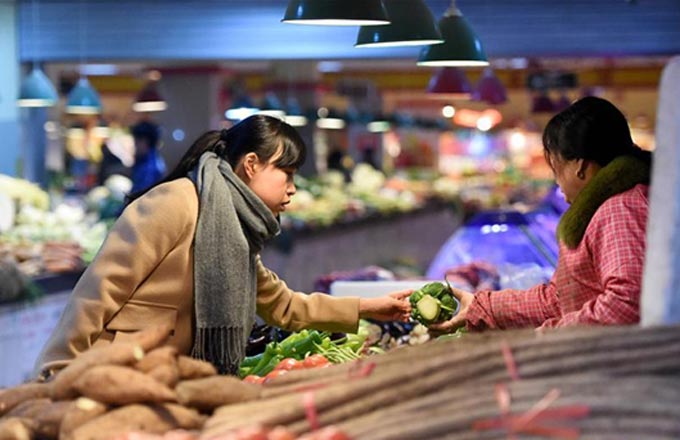E-commerce brings new fortune to revolutionary heartland
JINGGANGSHAN - In Hongshi Village, Huang Xiaohua is a household name.
At just 40 years old, Huang makes an annual income of more than 200,000 yuan ($28,792), while most of his fellow villagers average just 6,000 yuan.
Huang is a farmer in Hongshi, a small village tucked away in the lush green mountains of Jinggangshan, east China's Jiangxi province. The area is famous as the site of early revolutionary activities of the Communist Party of China, but it is also known for grinding poverty.
Huang has thrived because of e-commerce. China Post, the State-owned postal service and logistics operator, inked a deal with him last year to sell his local specialties in big cities, where rising disposable incomes and concern about food safety have fueled a huge demand for natural food from rural China.
"They suggested that I put my products on their website and work with them in logistics," Huang said. "Since then, orders have flooded in, and I handle about 30 orders a day."
Similar e-commerce stations are being rolled out across villages in Jinggangshan. According to latest figures released by China Post, 18 such sites have been established in rural Jinggangshan. In Jiangxi, the number has reached 1,336.
E-commerce is booming in China, but logistics services in rural areas remain difficult. In Jinggangshan, sales of local products from remote mountain villages, such as fungus and bamboo shoots, had been tepid as most parcel delivery services only reached township-level localities. Couriers could not spend hours on the road just to collect a few items from villagers, so in the past products in rural Jinggangshan were consumed locally.
After retiring from the army in the 1990s, Huang started growing and selling bamboo fungus, an edible mushroom particularly suitable for Jinggangshan's geography. But sales channels were limited, and Huang's business remained tepid.
"In the past, prices of the fungus were usually set by purchasers, and it was hard to make money," Huang said.
In November last year, China Post launched an online shopping and parcel delivery site in Hongshi Village, helping villagers sell products on its website. The company already had mailing stations in most villages for mail delivery, but has sought to break into the competitive logistics field since demand for postal services has waned in the Internet era.
While most villagers were cautious, Huang sensed opportunity and took the offer.
"The company promised to help with the packages, online promotion and parcel delivery," Huang said. "All I need to do is grow the bamboo fungus and pay the logistics fees." Each day, a courier comes to collect products from Huang's station.
Huang said that in the past, he could sell the fungus in large quantities, but profits were quite low. With e-commerce, he can set his own prices without worrying about negotiating with middleman buyers.
By the end of November, Huang had received about 16,000 online orders, with sales revenue exceeding 1.3 million yuan.
After tasting success, Huang invited his fellow villagers to jump on the bandwagon.
"Now villagers bring dried fish, dried chili, mushrooms, and red rice to me to sell online," Huang said.
China is looking to exploit the ample retail opportunities in its underdeveloped rural areas through e-commerce, with the Ministry of Commerce announcing in October that "policy support will be given to small online retailers ... to lower their operational costs."
More will be done to support and nurture e-commerce businesses operating in rural regions, and training programs will be offered to small business owners, according to a circular posted on the ministry's website.
Huang said he plans to increase his current 200 mu (13.3 hectares) of bamboo fungus to more than 300 mu to meet rising demand, employ more people and learn more about e-commerce.
"E-commerce has not only brought us fortune, but also connected us with the outside world," he said.

















